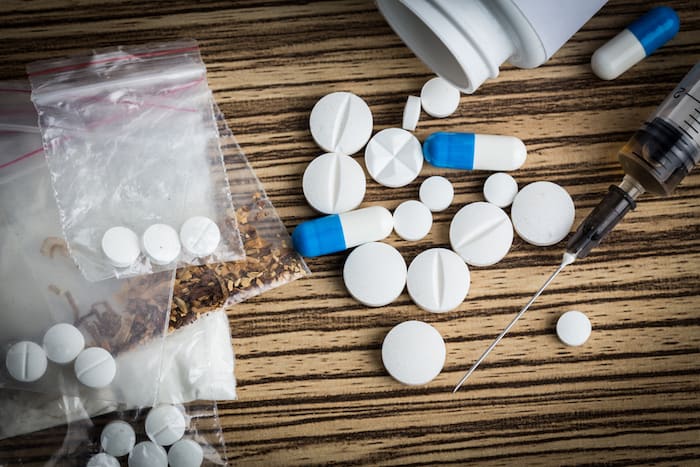Medical professionals face several challenges every day. They have to consistently provide high-quality medical services despite the existence of flawed healthcare systems and the presence of economic, political, and social barriers. They also have to make sure that they spend time with all of their patients, avoid stress and burnout, and have a good work-life balance.
The nature of their jobs is one of the reasons why several medical professionals rely on illegal or illicit drugs. Just like the average Joe, medical professionals would use drugs and alcohol to relieve themselves of stress. But because they have the resources to access and use these substances, it’ll be easier for medical professionals to suffer from addiction.
If you suspect addiction in a medical professional, look for the signs listed below to validate your hunch and enlist the help of The River Rehab right away:
1. Choosing To Work In Unusual Schedules
It’s common for medical professionals not to follow a working schedule. More often than not, they should be ready to work 24/7, especially when emergencies arise. However, if you start to notice a medical professional who would suddenly want to work longer hours, busy schedules, or overnight shifts, be wary. This is one of the most common signs of addiction in medical professionals.
Medical facilities, like hospitals, for example, are usually deserted during the evening. Sure, there are still employees working during this time, but the amount of traffic will be less than in the daytime. This will give medical professionals the chance to gain access to supply areas that contain illicit drugs.
On the other hand, some medical professionals would opt to work during busy schedules because no one will notice them if they grab illicit drugs from the supply area. The busier the shift is, the harder it’ll be to account for the loss of drugs. This is especially true during emergency surgeries.
2. Asking For Money
Several medical professionals earn more than the average income. Because of their educational background and medical experience, doctors, for example, earn very competitive salaries every month.
Asking for money despite their financial stability is also a red flag of addiction among medical professionals. More often than not, the money they earned from their profession is spent on buying drugs, and this practice will put a hole in their pockets.
Aside from regularly asking for money, addiction can also cause medical professionals to incur debts and file for bankruptcy.

3. Energy Swings
Working as a medical professional is no easy feat. Aside from responding to medical emergencies, they also have to make sure that they provide the same quality of services to all of their patients during the day. Medical professionals, especially those assigned in rural areas, aren’t allowed to turn down a patient’s need for surgery just because they are tired.
Although something worthy of praise, medical professionals who possess heightened energy levels after a 10-hour shift is actually a cause for concern. Having this much energy is a sign of addiction because a clean and healthy person would usually run out of energy after a few hours of work.
Sure, a medical professional might get a boost of adrenaline during emergencies, but if this energy comes from the middle of nowhere and lasts throughout the day, addiction is usually the culprit for this behavior.
4. Disregard For Harm
The lives of their patients are in a medical professional’s hand. A single mistake can worsen a patient’s illness and take away their life. Medical professionals have a lot of responsibilities to their patients, which is why they should always be careful when working. But since addiction can rewire the brain and affect their mental health over time, medical professionals will often disregard harm instead of protecting their patients from it.
A doctor who always handles procedures by the book and then suddenly wants to take shortcuts when working with a patient is a manifestation of addiction. Seeing a 180-degree change on how a medical professional handles risks is a sign of addiction because this disease can cause their brain to seek more dangers and engage in risky situations.
5. Withdrawal From Relationships
It’s common for employees in medical facilities to be friends with each other. Working in this field isn’t easy, and having someone who can relate to their experience will make the job seem lighter.
Although not everyone is going to be best friends at work, a medical professional who suddenly withdraws from their social circle is a sign of addiction. This happens because medical professionals who abuse drugs would want to feed their addiction without having anyone to tell them to refrain from their activities.
Enlist Help
Addiction is a serious condition that comes with several physical, psychological, and personal complications. The years that a medical professional spent to earn their education, training, and experience will be useless if they succumb to addiction.
If you notice any of the signs listed above, reach out to the person involved, show empathy, and encourage them to go to rehab. Addiction can adversely affect a medical professional’s life, but treatment is always available to help them turn over a new leaf.
Throughout the year, our writers feature fresh, in-depth, and relevant information for our audience of 40,000+ healthcare leaders and professionals. As a healthcare business publication, we cover and cherish our relationship with the entire health care industry including administrators, nurses, physicians, physical therapists, pharmacists, and more. We cover a broad spectrum from hospitals to medical offices to outpatient services to eye surgery centers to university settings. We focus on rehabilitation, nursing homes, home care, hospice as well as men’s health, women’s heath, and pediatrics.








